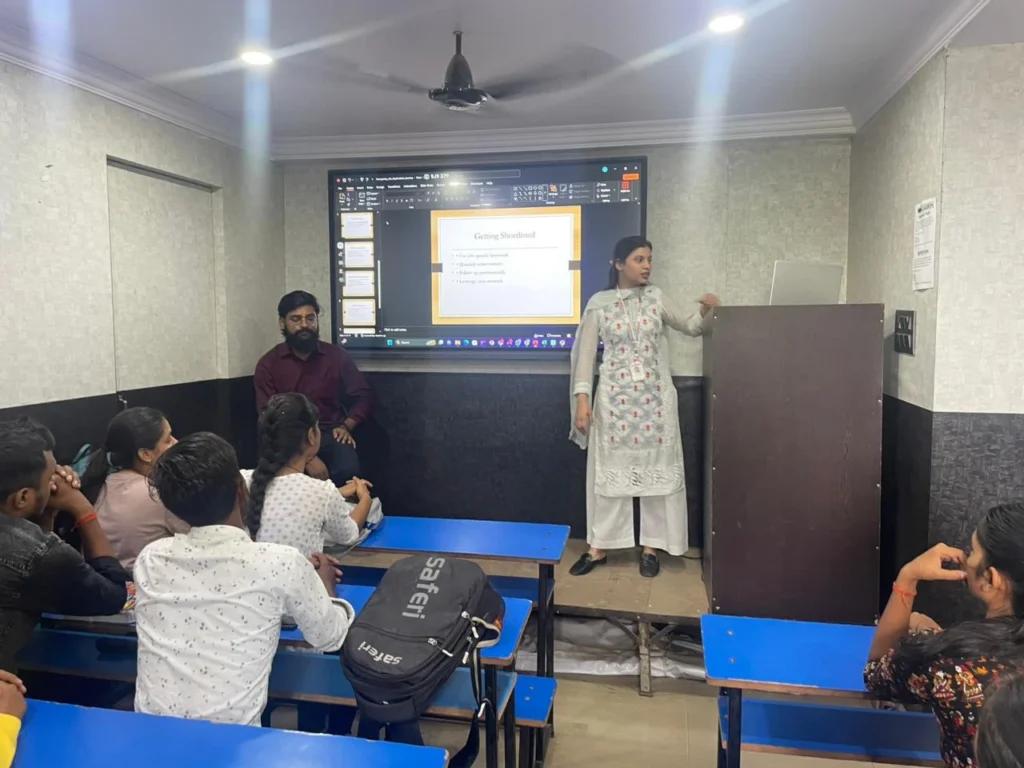Where Practical Learning Builds Real IT Futures
Where Practical Learning Builds Real IT Futures In the rapidly evolving digital era, the IT industry continues to create countless opportunities for those equipped with the right skills. However, one challenge remains constant: the gap between theoretical knowledge and real-world industry requirements. This gap is the reason many students and graduates struggle to secure stable and rewarding IT jobs. The solution lies in practical learning, where hands-on experience transforms knowledge into capability and builds real, sustainable IT futures. The Limitations of Theory-Only Learning Traditional education systems focus heavily on theory, exams, and grades. While this approach helps in understanding basic concepts, it often fails to prepare learners for actual workplace challenges. In IT roles, professionals are expected to write efficient code, analyze real datasets, troubleshoot errors, work with teams, and deliver results under deadlines. These skills cannot be mastered through textbooks alone. Employers today seek candidates who can contribute from day one. They look for individuals who understand tools, workflows, and real project environments. This is where practical learning becomes essential—it bridges the gap between classroom knowledge and industry expectations. Why Practical Learning Matters in IT Practical learning allows students to apply concepts in real scenarios. When learners work on live projects, case studies, and simulations, they gain a deeper understanding of how technology works in the real world. This approach builds confidence and problem-solving abilities, which are crucial for success in IT careers. Some key benefits of practical learning include: Through hands-on practice, learners move from simply knowing concepts to using them effectively. Building Job-Ready Skills Through Projects Projects play a vital role in shaping IT careers. Whether it is developing a website, analyzing business data, creating automation scripts, or building machine learning models, projects help learners showcase their abilities. They also serve as proof of skills during interviews. Project-based learning helps students: This experience makes candidates stand out in a competitive job market and increases their chances of employment. Industry-Relevant Curriculum and Tools The IT industry evolves rapidly, with new technologies emerging every year. Practical learning programs focus on industry-relevant tools and technologies such as Python, Java, data analytics platforms, cloud services, AI tools, and full-stack development frameworks. Learning the right tools ensures that students remain relevant and adaptable. Instead of outdated syllabi, practical training emphasizes current market demand, helping learners align their skills with real job roles. Opportunities for Freshers and Career Switchers One of the biggest advantages of practical IT training is its inclusivity. Freshers, non-IT graduates, and working professionals looking to switch careers can all benefit from hands-on learning. With structured guidance, step-by-step modules, and continuous practice, learners from any background can build strong IT foundations. Practical learning focuses on doing, not just memorizing. This approach boosts confidence and helps learners overcome fear of technology or programming. Mentorship and Real-World Exposure Learning under experienced mentors adds immense value to practical education. Industry professionals bring real-world insights, best practices, and career guidance that cannot be found in books. They help learners understand how companies operate, what interviewers expect, and how to grow professionally. Mentorship combined with practical exposure prepares learners not only for jobs but also for long-term career growth in the IT sector. From Learning to Real IT Futures A real IT future is built on skills, adaptability, and continuous learning. Practical training ensures that learners are not limited to theoretical understanding but are equipped to handle real responsibilities in the workplace. Resume building, mock interviews, internships, and placement support further strengthen employability. When learning is aligned with industry needs, students transform into confident professionals ready to contribute to the digital economy. Conclusion The future of IT belongs to those who learn by doing. Practical learning empowers individuals with real skills, real confidence, and real career opportunities. By focusing on hands-on training, industry-aligned curriculum, and expert mentorship, learners can build strong foundations for successful IT careers. In a competitive world driven by technology, practical learning is not an option—it is a necessity. Where practical learning thrives, real IT futures are built.








